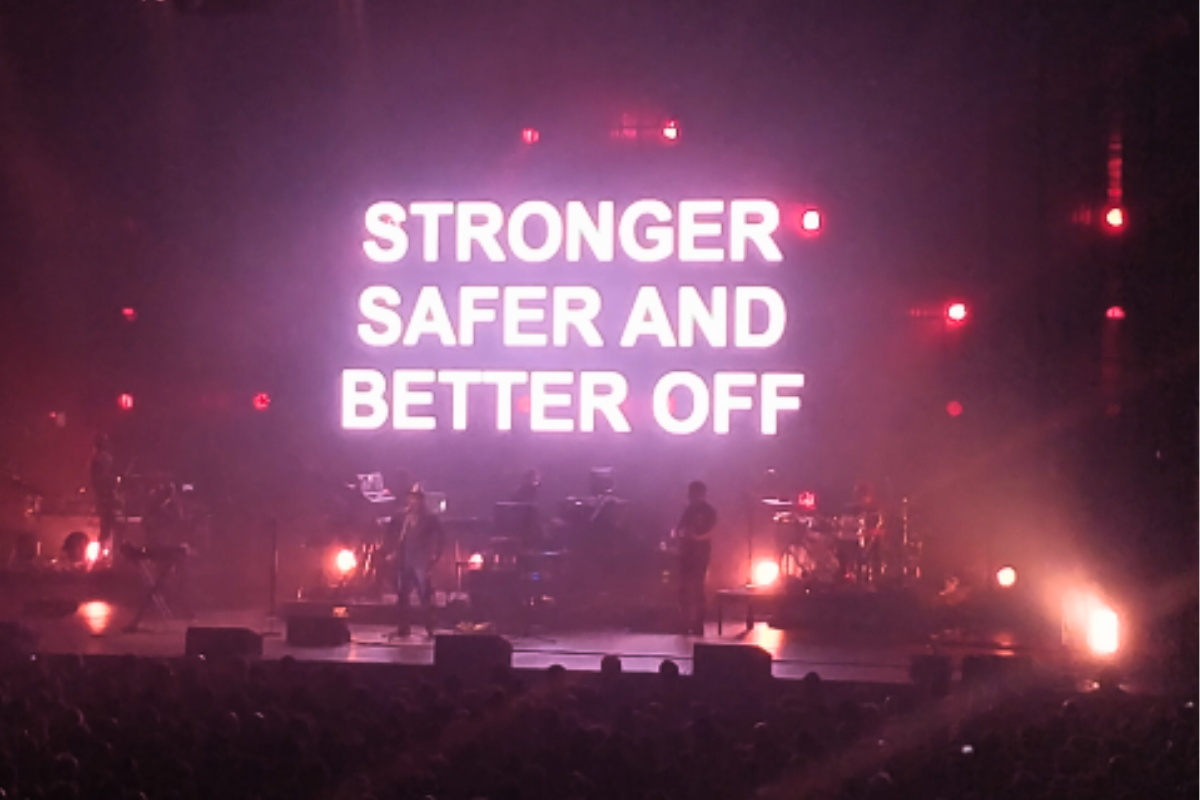
Massive Attack performing in Paris, 2019
Photo: Like tears in rain/Wikimedia Commons
Massive Attack successfully pulls off ‘zero emissions’ festival
The one-day event in Bristol, attended by over 30,000 people, tackled the emissions emitted by transport, food, energy and waste at a music festival.
Massive Attack organised and headlined a one-day festival in Bristol over the Bank Holiday weekend, thought to be the first event of its type and scale to be powered entirely by renewable energy, which the band hopes will "trail for new standards of decarbonisation of live music".
The event, named Act 1.5, in reference to the United Nations treaty to keep global heating to under a 1.5 degrees threshold, was attended by over 30,000 people and featured talks from politicians, historians and activists alongside music performances.
The trip-hop band first began to develop the idea of a climate-conscious performance in 2018 and has since commissioned a report by Tyndall Centre for Climate Change Research that produced a roadmap to super-low carbon live music.
READ MORE:
- Can fungi boost festival sustainability?
- Venues urged to adopt ‘theatre bus’ scheme to tackle emissions
Acting upon the recommendations of the report, the event on Sunday saw the stages powered by rechargeable batteries rather than diesel generators. In addition, it was equipped with compost toilets, had vendors on site selling only plant-based food, and sent no waste to landfills.
People living locally were prioritised with presale access to tickets, as research has shown that attendees' travel makes up the highest proportion of an event’s emissions. There was no car park to discourage car travel.
Instead, gig-goers were urged to walk, cycle, scoot or get public transport – including on one of five special trains provided in partnership with Great Western Railways, running to locations across the southwest an hour after regular Sunday services had ended.
To access the late-night trains, users had to buy return tickets via the booking platform Train Hugger, which plants a tree every time someone books a ticket to encourage travel by public transport. Train Hugger says 20,000 oak trees will be planted 40 miles from Bristol as a result of the event.
Train travellers then had access to a VIP bar with separate toilets on site and benefited from complimentary transfers to and from the train station via electric bus.
Massive Attack's Robert Del Naja, also known as 3D, told the BBC: “The show production is pioneering in all aspects of decarbonisation and will create a blueprint for the way live shows can be produced. The scale of innovations and emissions reductions will speak for themselves.”
Earlier this month, a report urged more theatres to incentivise audience members to travel to performances via bus after highlighting the impact of audience travel as a significant source of carbon emissions for venues.
Join the Discussion
You must be logged in to post a comment.